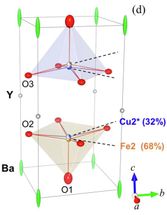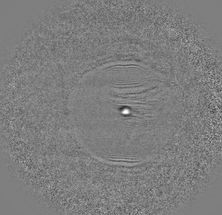A patent-free playground
Researchers and industrial companies collaborate to create a new Open Science platform
Along with a number of leading Danish industrial companies, Aarhus University has opted out of the patent rat race in a new collaboration on industrially relevant basic research. Researchers and companies from all over Denmark publish all their results and data on the innovative Open Science platform, where the information is available free of charge to everyone interested.
The Open Science platform breaks the barriers that make it difficult and expensive for companies to gain access to - or become familiar with - the part of basic university research that is most relevant for them.
It also provides new answers to a number of the major challenges facing basic research - not least in Denmark - where both researchers and grant givers focus increasingly on safe bets, and give low priority to research projects that run the risk of not being able to pay off in the long run.
The platform has been established with funds from the Danish Industry Foundation, it combines basic research with industrial innovation in a completely new way, ensuring that industry, and the universities get greater benefit from each other's knowledge and technology.
University researchers and companies collaborate across the board to create fundamental new knowledge that is constantly made available to everyone - and which nobody may patent. Subsequently, however, everyone may freely use the knowledge to develop and patent their own unique products.
Boosting risk tolerance
Dean Niels Chr. Nielsen, Science and Technology, Aarhus University, regards the Open Science platform as a strong response to several of the major challenges facing the research and business sectors - and thereby society.
"Public and private institutions and foundations protect their research investments by focusing on safe bets. Either by favouring applied research with a high probability of commercial success, or by ensuring that our research centres keep to clearly defined benchmarks that control the flow of funds and time - but do not allow room to explore unexpected opportunities that arise during the process," he says.
"The paradox seems to be that we don't like investing in unorthodox or complex ideas because of the high risk that they won't eventuate. At the same time, however, society can't afford to turn our universities into factories that are occupied with small and self-evident ideas," adds the dean.
Great interest
The idea of collaborating in such a patent-free zone has aroused enormous interest in industry and among companies that otherwise use considerable resources on protecting their intellectual property rights.
The first Open Science platform focuses on smart materials, and initially covers twenty small and medium-sized enterprises (SMEs), including Danish industrial flagships such as ECCO, LEGO, VELUX, Vestas, Grundfos, SP Group and Terma - as well as researchers at the chemistry, physics and engineering departments at Aarhus University and all the other universities in Denmark.
Patent-free zone - and a movement
"Open Science will be a playground where companies and universities can try out their ideas without taking major risks. They can venture out of their normal surroundings and try new things relatively risk-free. This is particularly interesting for SMEs, only a few of which are experienced in research-based development. And because participants in the Open Science platform have access to the latest university research, they can acquire a basis for creating unique products with increased market potential," says Professor Kim Daasbjerg, iNANO, who is not only the instigator of the project, but is also responsible for the platform.
He adds that the Open Science idea in this form is not entrenched at Aarhus University, but is a movement just like open source, crowdfunding and crowdsourcing.
"Other research environments are completely free to imitate us and to copy and paste our model. We hope this will happen. At the rate the project has spread until now, I predict that Open Science can have the same impact on the scientific ecosystem associated with basic research that Internet streaming has had on the music and film industry," explains Professor Daasbjerg.
Expensive patents and journals
The Open Science platform is thus the source of a number of paradigm shifts. It not only breaks away from the focus of universities on patenting their research discoveries, but also constitutes a conscious rebellion against the business models used by scientific journals.
"Patents and sales of licenses run at a loss for most universities. In addition, the Danish Patents Act does not allow for Open Science, where basic research is carried out in a melting pot before you know whether any business can come out of it," explains Professor Daasbjerg.
It is very expensive to subscribe to the major important journals - even for research institutions whose researchers provide the contents - and because the journals also assume copyright of the authors' articles, the authors (i.e. the researchers) have to pay if they want to share their contents with the wider public.
Breakthrough for industry
The Open Science platform is also a breakthrough for the industrial participants.
Product and Process Technology Manager Kristian Møller Kristensen, VELUX, describes the collaboration as opening a window into basic research in a way that is different from the company's previous procedures.
"It's about taking industrial development in the direction we need and not waiting for others to do it. It requires greater foresight than we're used to working with. We're fully aware of the fact that 99 per cent of the world's most talented people do not work at VELUX. We need to go out and find people who can help us move on, and this is precisely where other skilled people can contribute in Open Science," he says.
The platform can be reached via the link in the right box.





















































